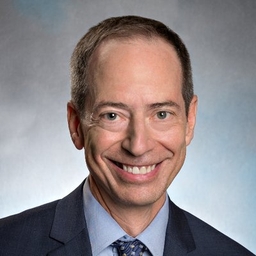
Paul E. Sax
Contributing Editor at NEJM Journal Watch
Editor-in-Chief/Clinical Director at Clinical Infection in Practice
Harvard/Brigham Infectious Diseases doctor, writer, @CIDJournal editor, educator. Prefer baseball to football, pizza to sushi, dogs to cats, Beatles to Stones.
Articles
-
2 weeks ago |
blogs.jwatch.org | Paul E. Sax
There are certain irrefutable verities when, like me, you're an infectious diseases specialist married to a pediatrician. Here are our top two, which are deeply interrelated: Infectious deaths in children, or severe illnesses that lead to lifelong disability, are more devastating than similar events in adults. Each such case in a baby or child is so very tragic.
-
3 weeks ago |
blogs.jwatch.org | Paul E. Sax
If you've made it this far, congratulations! You're now deep into the ID Reimbursement Rabbit Hole. Part 1 and Part 2 covered how ID doctors contribute immense value through patient care, stewardship, infection control, travel clinics - proudly fighting along the way for appropriate compensation as the "Loss Leaders" of the hospital. (Did you get your emblazoned fleece vest yet?)Before going on, however, I'd like to address the ongoing concern that discussing payment is somehow unseemly.
-
4 weeks ago |
blogs.jwatch.org | Paul E. Sax
Before getting to today's main topic, allow me a brief protest - three recent vaccine-related actions that reek of profound (and misguided) vaccine distrust from HHS leadership. They are:So painful. (Deep breath.)Ok, on with the main topic of today's post. In Part 1 of this series, I described how ID doctors earn their income through direct patient care - consults, outpatient visits, and (less commonly) procedures. But clinical care is not the only source of salary support for our specialty.
-
1 month ago |
blogs.jwatch.org | Paul E. Sax
In case you missed it, last week the FDA granted full approval for the Novavax COVID-19 vaccine. This vaccine, which uses a more traditional protein-plus-adjuvant strategy instead of the mRNA approach of Pfizer and Moderna, is no longer in "Emergency Use Authorization (EUA)" limbo. Here's what that means in practical terms: It shows the data the company submitted were sufficiently favorable from a safety and efficacy standpoint to merit full approval.
-
1 month ago |
blogs.jwatch.org | Paul E. Sax
Two decades ago, Dr. Atul Gawande wrote a memorable piece for The New Yorker about how doctors in the United States get paid. Providing a nice mix of self-reflection about his own experience and some skillful reporting, he described the challenging process of figuring out what he, a newly hired surgeon, should earn for a salary. Why challenging? Most people are squeamish about saying how much they earn, but in medicine the situation seems especially fraught.
Try JournoFinder For Free
Search and contact over 1M+ journalist profiles, browse 100M+ articles, and unlock powerful PR tools.
Start Your 7-Day Free Trial →X (formerly Twitter)
- Followers
- 57K
- Tweets
- 5K
- DMs Open
- No